#anna magdalena bach
Explore tagged Tumblr posts
Text
I guess most cellists will be aware of Anna Magdalena Bach as her copy of the Bach suites is one of the definitive versions.
There may or may not be an English version on the DW site somewhere, can't find it right now.
0 notes
Text
youtube
#Musette#D Major#BWV Anh. 126#Anna Magdalena Bach#Johann Sebastian Bach#Piano Sheet Music#Piano Tutorial#violin#guitar#sheet music#piano#flute#notes#music notes#pdf#Youtube
0 notes
Text
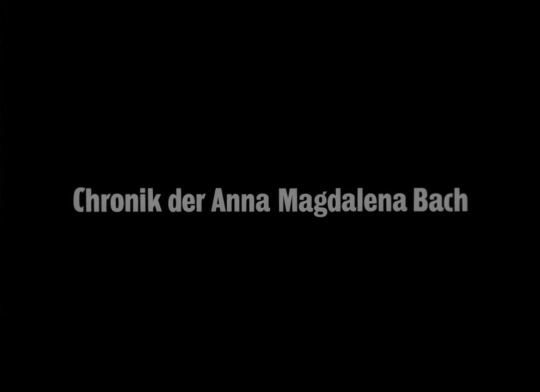
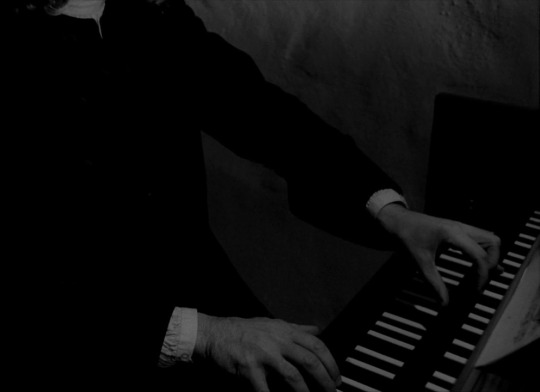
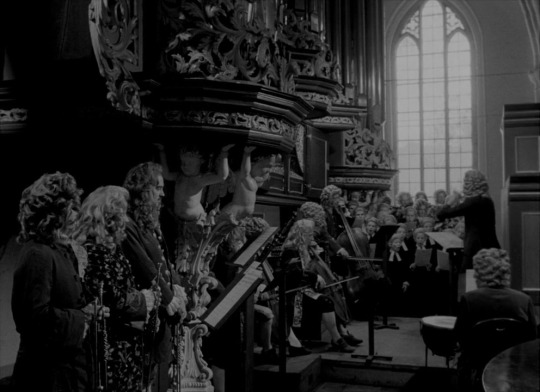
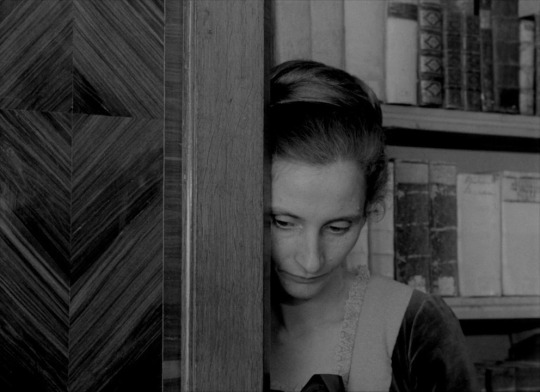

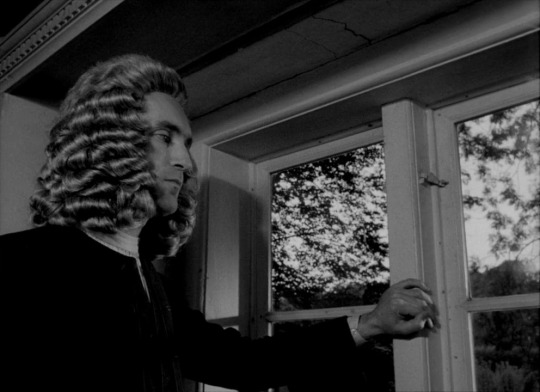
Chronicle of Anna Magdalena Bach [Chronik der Anna Magdalena Bach] (1968), dir. Jean-Marie Straub, Danièle Huillet
#chronicle of anna magdalena bach#chronik der anna magdalena bach#jean-marie straub#daniele huillet#german cinema#film stills#*#directed by women
12 notes
·
View notes
Text
youtube
By J.S. BACH, we play on our piano three pieces from the notebook Notenbüchlein für Anna Magdalena BACH (the BWV 511, the BWV Anh. 131 and the BWV 510) .
2 notes
·
View notes
Video
youtube
J.S. Bach, Aria BWV 515, Notenbüchlein für Anna Magdalena Bach - Mobiler...
Erleben Sie die Aria von Johann Sebastian Bach aus dem Notenbüchlein für Anna Magdalena Bach. Dieses Stück stammt aus einer Sammlung von Klavierwerken, die Bach seiner Frau Anna Magdalena gewidmet hat. Bach, ein bedeutender Komponist des Barockzeitalters, lebte von 1685 bis 1750 und gilt als einer der größten Musiker aller Zeiten. Seine Kompositionen zeichnen sich durch ihre Tiefe, Virtuosität und emotionale Reichhaltigkeit aus. Die Aria ist ein Beispiel für Bachs meisterliche Fähigkeit, Melodie und Harmonie zu vereinen. LEARN MORE: https://mobiler-musikunterricht.de/ Musiknoten zum herunterladen, drucken & sofort spielen! + übersichtliche Noten (PDF) + 5 Playbacks zum üben! https://gumroad.com/helmarweiss #Klassik #PianoTutorial #MobilerMusikunterrichtRegensburg #Musikschule #Regensburg #KlavierLernen #Bach #Menuett #Barock #EinberufungMusik #EinladungMusik #LeisteDeinenBeitragFürDieMusik #musikradikalismus #Barockmusik #Aria #NotenbüchleinfürAnnaMagdalena #Klassik #Musikgeschichte #Komponist #Meisterwerk
#youtube#johann sebastian bach#Notenbüchlein für Anna Magdalena Bach#Aria#BWV 515#Helmar Weiß#Klavier#Piano#Mobiler Musikunterricht Regensburg und Laaber
1 note
·
View note
Text

#notebook for anna magdalena bach#390#$0.31#notebook for school#-#notebook for work#1.6K#$1.91#notebook for kids#notebook for notes#320#$1.18#notebook for sale#1K#$1.69#notebook for journaling#880#$1.45#notebook for college#notebook for bible study#720#$0.47#notebook for golf clash#70#notebook for ipad#480#$0.57#notebook for passwords#1.3K#$0.6
0 notes
Text

Please Lord let this be the story of my life…
“Johan Sebastian Bach lost his little daughter and then three sons and then his wife. Then he remarried and then he and his second wife, Anna-Magdalena, lost four more daughters and three sons. Eleven beloved children...
Many researchers have wondered: how Bach managed to handle these losses? How did he not stop breathing, how did his heart not stop? And most importantly, how could he continue to write music? Kantati, cello suites, masses, concerts... The most beautiful music the world has heard. Do you know how he did it?
At the end of the his music, he always wrote "Soli Deo gloria" (Glory to God alone) and in the beginning, "Lord help.” Therefore, you can pray during Bach's music because the music itself is prayer. You could, then, consider Bach's music a conversation between man and God. How do you deal with pain? Worship is the best solace.”
(Autbor Unknown)
9 notes
·
View notes
Note
I wonder how often someone who knows Sam casually invites their hot friend to a function he’ll be at, with hopes that they’ll hit it off and the original someone will get to be lifelong friends with him. This boat girl seems like it could easily be that: someone knows her, invites her along, she flirts with Sam all day, sits near him, and thinks she has a chance. Doesn’t even have to be someone his team sets up, and the fandom does all the work of assuming they’re together. The guy doesn’t even need to put forth any effort to get a fake SO!
Dear Casual Anon (are you the same person as Manager Anon?),
Makes sense.
Also, I can show you (but shall, of course, not) a couple of very cordial pics of myself and my German counterpart at some functions. We dined twice in town: first time talked about job shit and the second time about Bach (Anna Magdalena included, for that is a beautiful story, too).
He is now posted somewhere in Central Asia, I think. We keep polite tabs on each other and were just friends. I never mix business with pleasure. It simply never crossed my mind and I find it tacky as hell.
You might think that working in Government is different than showbiz, but at the end of the day, is it really so? And then let me also remind you that (almost statistically) at any given event, there's always the inordinately friendly, flirty one.

53 notes
·
View notes
Text

Sabías que Johann Sebastian Bach sufrió inmensas pérdidas personales a lo largo de su vida? Primero perdió a su pequeña hija, luego a tres de sus hijos y, más tarde, a su esposa.
Tras estas tragedias, se volvió a casar con Anna Magdalena, pero el dolor no cesó: juntos perdieron cuatro hijas más y tres hijos. En total, Bach perdió a 11 amados hijos.
Estas experiencias llevaron a muchos investigadores y admiradores de su obra a preguntarse: ¿Cómo pudo Bach afrontar tales devastadoras pérdidas? ¿Cómo pudo seguir respirando, cómo pudo su corazón seguir latiendo después de tanto dolor? Y, lo más importante, ¿cómo pudo seguir componiendo música? Cantatas, suites para violonchelo, misas, conciertos... la música más bella que el mundo haya escuchado jamás.
La respuesta a estas preguntas se encuentra en la profunda fe de Bach. Al final de cada partitura, siempre escribía "Soli Deo Gloria" ("Gloria sólo a Dios"), y al comienzo anotaba "Señor, ayúdame". Para Bach, componer no era solo un acto artístico, sino también un acto de devoción. Su música era, en esencia, una oración continua, una conversación entre el hombre y Dios.
Así, cuando escuchamos la música de Bach, no solo estamos disfrutando de una maestría musical sin igual, sino también participando en un diálogo espiritual. La música de Bach trasciende las notas y melodías, convirtiéndose en un puente entre lo terrenal y lo divino. Esta combinación de arte y fe es lo que le permitió a Bach superar las tragedias personales y crear obras que siguen inspirando y conmoviendo al mundo entero.
5 notes
·
View notes
Text
15 Questions for 15 Mutuals
I was tagged by my dear friends @theroyalthornoliachronicles, @historicalfictionsims and @kyriat-sims ♥♥
Are you named after anyone? My parents named me after the 2nd wife of Johann Sebastian Bach, Anna Magdalena Bach. They're both big fans of classical music, of Bach specifically, but they also really liked the name. Originally they wanted to call me Anna Magdalena, but they thought people would only call me Anna then, so it's just Magdalena today ;)
When was the last time you cried? I cry all. the. time. i think the last time was this afternoon when I saw a cute animal video on twitter. i'm a terrible cry baby, but i'll be fine after 30 seconds :D
Do you have kids? Just my two fur babies.
Do you use sarcasm a lot? Nooooo. Never. Who does that?!
What sports do you play/have you played? When I was a kid, I was in a dance group; I'm not sure what the proper name would be (we called it Jazz Dance, but it wasn't what Jazz Dance is to most people). We rehearsed dance performances that our teacher put together, loosely inspired by music video dancing in the early 2000s. I also played Handball (european handball that is!) for a while, and I'm still a fan of watching it.
What’s the first thing you notice about other people? Just vibes, mostly. There's not a physical thing that I notice most, but I usually can tell if a person is nice or not, or if i'll like them or not. i'm usually right about it, but of course... not always.
Eye colour? Green!
Scary movies or happy endings? I like both. I don't mind being scared. But for action movies, comedies, romance movies, dramas etc, i want happy endings. the world is bad enough, i don't need people to suffer just like that on my tv.
Any special talents? Literally none.
Where were you born? Germany!
What are your hobbies? The Sims, playing video games overall, making cc, reading, listening to and making music, but most of the time, i just hang out with my cats.
Do you have any pets? I have two cats: Woody (a long haired Maine Coon Mix, with heart disease) and Tigger (a short haired black cat, breed unknown) who likes to bite. Their previous owner mistreated them rather badly, so I'm spoiling them as much as i can.
How tall are you? As I read just yesterday, the same height as Nick Jonas!
Favourite subject in school? English ;)
Dream job? I used to want to be a reporter for TV news, or involved in that somehow; my dream would have been to report on US-politics. But when I interned at a tv station, it was so god awful that I decided to drop that dream. I love the job I have now in tourism, but it doesn't make near enough money to support myself 100%; if it did, it would probably be my dream job. oh well.
Since i think everyone on my timeline has already done it, please feel tagged if you haven't and would like to answer some questions!
♥
2 notes
·
View notes
Text
EL FIN DE HUILLET-STRAUB
Una de las parejas creativas más duraderas, firmes y misteriosas del cine se ha deshecho este otoño con la muerte de Danièle Huillet, ocurrida la noche del 9 al 10 de octubre en París, donde preparaban el estreno de su último film, Quei loro incontri (2006), de vuelta a Pavese.
Nacida el 1º de mayo de 1936, Danièle Huillet contaba, pues, setenta años. Desde 1954 vivió y trabajó con Jean-Marie Straub (nacido el 8 de enero de 1933), en una suerte de complementariedad y simbiosis en la que resulta indiscernible que ninguno de los fraternales y conyugales socios y amigos fuese la parte predominante. Siempre he tenido la sensación de que la obra – cada película, corta o larga – pertenecía a ambos por igual y por entero, indistinta e inseparablemente; en alguna ocasión quizá fuese ella el motor y él su crítico; en otras él proponía y ella, que siempre pareció más callada y más segura, decidía, o le exigía todavía un esfuerzo, un montaje más ligero o un tono más neutro. Una mujer sin duda fuerte, valiente y discreta, radical, tajante y fiel (a todo lo que un día eligiera y abrazara, y además a sí misma: no iba de sacrificada, no era sombra ni reposo), puede intuirse su función decisiva, nunca subsidiaria, en el magnífico documental hecho en 2001 por el cineasta portugués Pedro Costa, Où gît votre sourire enfoui? (sobre todo en su versión larga, más que en la abreviada emitida por ARTE).
No llegué a conocerlos. Temo que, más allá de su desaparición física, la muerte de Danièle sea el fin de ese cineasta bifronte, electivamente siamés, al que podríamos llamar “Danièle Huillet & Jean-Marie Straub”, como hay que referirse a “Gene Kelly & Stanley Donen”, sin privilegiar a uno solo, como autor de Singin’ in the Rain. Por ello, me es imposible no tener una terrible sensación de pérdida: uno menos, otro menos, de los pocos grandes cineastas resistentes que quedan ya en el mundo. De los exigentes, de los íntegros, de los austeros, de los que no se venden ni se rinden, de los que no reniegan de sus ideales ni deponen sus utopías, sin confundirlas con realidades alcanzables. De esos directores de los que sus colegas cómodamente conformados (y los “críticos” conformistas, que no soportan la disidencia) pretenden mofarse tratándolos de “monacales”, como si hubiesen hecho voto de pobreza, cuando meramente se han habituado a ella, y a aguantarla, como parte del peaje que para ejercer la libertad hay que pagar a sus enemigos (que suelen tener el techo, la bolsa y el camino). También de esos – cada vez más escasos – que buscan sus raíces en el pasado, y no se limitan al cine cuando buscan antecesores, modelos morales, casos ejemplares, que reconocen sus deudas, que no olvidan, que mantienen vivo y en pie el recuerdo, la audacia, el descubrimiento, por antiguo que sea.
No es preciso (ni quizá, por completo y en toda ocasión, sea posible) estar de acuerdo con ellos, compartir sus fobias y amores, comulgar con su tenacidad a prueba de bombas, para admirar profundamente la tensión desnuda y contenida de sus películas – cortas, medianas o largas, de lengua francesa, alemana o italiana – , quizá las más veloces nunca rodadas, tan rápidas y densas que, por lo visto, es difícil comprender lo que en ellas se nos muestra y cuenta: hace falta esa misma concentración y atención para verlas. Si alguien ha ido “al grano” ha sido el doble autor, la pareja responsable de Nicht versöhnt (1965), Chronik der Anna Magdalena Bach (1967), Der Bräutigam, die Komödiantin und der Zuhälter (1968), Les Yeux ne veulent pas en tout temps se fermer ou Peut-être qu’un tour Rome se permettra de choisir à son tour (Othon) (1969), Geschichtsunterricht (1972), Moses und Aron (1975), Dalla nube alla Resistenza (1978), Zu früh/Zu spät (1981), Klassenverhältnisse (1983), Die Antigone des Sophokles nach der Hölderlinschen Übertragung für die Bühne bearbeitet von Brecht 1948 (Shurkamp Verlag) (1991), Von heute auf margen (1996), Sicilia! (1999), Operai, contadini (2001), entre otras. Son películas irremplazables, que nadie salvo Huillet & Straub hubiera hecho, probablemente, de haber alguien interesado por el tipo de autores (Böll, Bach, Brecht, Schönberg, Fortini, Vittorini, Pavese, Barrès, Hölderlin, Sófocles, Cézanne, Kafka, Engels, Mallarmée, Duras, Brückner, Corneille) de los que la pareja se servía como “pre-textos” o cimientos con los que construir, con los elementos más simples, más resistentes y más necesarios, una escultura, un edificio cuyo significado resultase materialmente inequívoco, inmanipulable, no aprovechable, elaborado para que permanezca “en bruto” en un bloque fluido e indesgajable. Como una roca.
Tal vez descanse, pero vela alerta.
Escrito hacia noviembre de 2006. Sin identificar dónde se publicó.
2 notes
·
View notes
Text
Sabías que Johann Sebastian Bach sufrió inmensas pérdidas personales a lo largo de su vida? Primero perdió a su pequeña hija, luego a tres de sus hijos y, más tarde, a su esposa.
Tras estas tragedias, se volvió a casar con Anna Magdalena, pero el dolor no cesó: juntos perdieron cuatro hijas más y tres hijos. En total, Bach perdió a 11 amados hijos.
Estas experiencias llevaron a muchos investigadores y admiradores de su obra a preguntarse: ¿Cómo pudo Bach afrontar tales devastadoras pérdidas? ¿Cómo pudo seguir respirando, cómo pudo su corazón seguir latiendo después de tanto dolor? Y, lo más importante, ¿cómo pudo seguir componiendo música? Cantatas, suites para violonchelo, misas, conciertos... la música más bella que el mundo haya escuchado jamás.
La respuesta a estas preguntas se encuentra en la profunda fe de Bach. Al final de cada partitura, siempre escribía "Soli Deo Gloria" ("Gloria sólo a Dios"), y al comienzo anotaba "Señor, ayúdame". Para Bach, componer no era solo un acto artístico, sino también un acto de devoción. Su música era, en esencia, una oración continua, una conversación entre el hombre y Dios.
Así, cuando escuchamos la música de Bach, no solo estamos disfrutando de una maestría musical sin igual, sino también participando en un diálogo espiritual. La música de Bach trasciende las notas y melodías, convirtiéndose en un puente entre lo terrenal y lo divino. Esta combinación de arte y fe es lo que le permitió a Bach superar las tragedias personales y crear obras que siguen inspirando y conmoviendo al mundo entero.

0 notes
Text
⌓ Click on the letters for more details. 글자를 클릭하시면 상세페이지로 이동합니다.
A - Φ - Δ - Σ - Ψ - Ω
PROGRAM Α: Opening Films 개막
2024 Oct 25 (Fri), 18:00
"The relationship between man and woman is the most immediate reflection of all human relationships." - Karl Marx
The film begins with the phrase, 'Where does your hidden smile lie,' which will become the title of Pedro Costa’s documentary recording the editing process of Sicilia! (1999), a film made by Danièle Huillet and Jean-Marie Straub, who lived and made films together for over 40 years. From Today Until Tomorrow is a film adaptation of an opera composed by Schönberg, which tells the story of "modern" married life. The opera is based on lyrics by Max Blonda, the pseudonym of Gertrud Kolisch, Schönberg's partner. Imagine the filming site where the entire film was shot in sequence with synchronized sound on a three-walled stage set, where the Radio-Sinfonie-Orchester Frankfurt, led by Michael Gielen, and the crew, including cinematographer William Lubtchansky, move whenever the scene changes. In another film adaptation of Schönberg's unfinished opera, Moses and Aaron (1974), for which Gielen also conducted the score, they filmed not on a set but outdoors in Egypt and Italy, using color film. In all their music films, including their first feature The Chronicle of Anna Magdalena Bach (1967), which recounted the lives of Anna Magdalena and her husband Johann Sebastian Bach in collaboration with Gustav Leonhardt, Huillet and Straub painstakingly adhered to shooting in sequence.
Meanwhile, Lothringen!, released together with From Today Until Tomorrow, is based on part of Maurice Barrès' 1909 novel Colette Baudoche. Although Barrès hailed from Alsace-Lorraine, like Huillet and Straub, he was widely known as a nationalist, unlike the self-declared communists Huillet and Straub. The film opens with a long panning shot that shows the statue of Kaiser Wilhelm I overlooking the Rhine and Moselle Rivers, the battleground of the 1871 Battle of Sedan in Koblenz, the Resistance memorial, the iron mines of Metz, coveted by both Germany and France, and cemeteries – all landscapes filmed in Lorraine in June 1994. In this setting, Colette Baudoche, the character in Huillet and Straub’s film, says “No” to a German suitor, but her ‘present’ is not the late 19th century; it’s right after the European Parliament in Strasbourg, the capital of Alsace-Lorraine, declared the founding of the EU.
Along with these two films, the opening film Wind From Nowhere (2024) raises curiosity about how its floating camera and characters will inherit or reject the (ana)chronism and (a)topos of Huillet and Straub. (SHIN Eun-shil)
“남자와 여자의 관계는 모든 인간 관계를 반영하는 가장 즉각적인 관계다.” -카를 마르크스
40년 넘게 함께 살며 함께 영화를 만든 다니엘 위예와 장마리 스트로브의 〈시칠리아!〉(1999) 편집 과정을 기록한 페드로 코스타의 다큐멘터리 표제가 될 문구, “당신의 숨겨진 미소는 어디에”라는 제사가 영화를 연다. 〈오늘부터 내일까지〉는 쇤베르크가 "현대" 부부 생활을 이야기하는 막스 블론다(쇤베르크의 반려자였던 게르트루트 콜리쉬의 필명)의 가사에 기초하여 작곡한 오페라를 영화화한 작품이다. 삼면 세트에서 철저히 순서대로 촬영하여 전편을 동시녹음으로 제작한 현장에서, 장면이 바뀔 때마다 미카엘 길렌의 프랑크푸르트 라디오 교향악단과 촬영감독 윌리암 뤼브샹스키를 비롯한 스태프들이 이동하는 모습을 상상해 보자. 다른 쇤베르크의 미완성 오페라를 영화로 옮기며 역시 길렌이 음악 감독을 맡았으나 세트가 아니라 이집트·이탈리아 야외에서 컬러 필름으로 찍었던 〈모세와 아론〉(1974), 구스타프 레온하르트와 협업하여 안나 막달레나와 그의 남편 요한 제바스티안 바흐의 삶을 복기한 첫 장편 〈안나 막달레나 바흐의 연대기〉(1967) 등 자신들의 모든 음악 영화에서, 위예와 스트로브는 엄청난 수고를 감수하며 순서 촬영을 고수했다.
한편 〈오늘부터 내일까지〉와 묶어 개봉한 〈로트링겐!〉은, 스트로브와 동향인 알자스로렌 지방 출신이지만 자타 공인 공산주의자였던 위예·스트로브와 달리 우익 민족주의 인사로 널리 알려진 모리스 바레즈의 소설 『콜레트 보도슈』(1909) 일부를 영화화한 작품이다. 긴 패닝으로 시작하는 영화는 라인과 모젤강을 굽어보는 프로이센 황제 빌헬름 1세의 동상, 1871년 세당 전투의 격전지 코블렌츠 전경, 레지스탕스 희생자 위령탑, 독일과 프랑스 모두 미련을 버리지 못했던 메츠의 철광, 묘지 등 1994년 6월의 로렌에서 촬영한 풍경을 보여준다. 이곳에서 독일인의 청혼에 “아니오”라고 말하는 위예·스트로브 영화 속 콜레트 보도슈의 ‘오늘’은 19세기 말이 아니라, 알자스로렌의 주도 스트라스부르에 설치된 유럽의회가 EU 출범을 공포한 직후였던 게다.
이 두 작품과 더불어 개막작으로 상영되는 〈기원 없는 바람〉(2024) 속 부유하는 카메라와 인물들이 위예와 스트로브의 (아나)크로니즘과 (아)토포스를 어떻게 계승하고 어찌 거부할지, 자못 궁금하다. (신은실)

Lothringen! 로트링겐!
Jean-Marie Straub & Danièle Huillet 장마리 스트로브 & 다니엘 위예
Germany, France | 1994 | Color | Sound | 35mm (digital projection) | 22’
⌔ more info

Von heute auf morgen 오늘부터 내일까지
Jean-Marie Straub & Danièle Huillet 장마리 스트로브 & 다니엘 위예
Germany, France | 1997 | B&W | Sound | 35mm (digital projection) | 63’
⌔ more info

Wind from Nowhere 기원 없는 바람
Il-hwan & Han Chae Yeon 일환 & 한채��
South Korea | 2024 | Color + B&W | Sound | Digital | 27'
⌔ more info
0 notes
Text
Bach, J.S. The Anna Magdalena Bach book of 1725
Bach, J.S. The Anna Magdalena Bach book of 1725 (Sheet Music PDF)
According to the Edition and Annotations by RICHARD JONES (ABRSM) Bach: Notebook for Anna Magdalena Bach (23 Videos) https://www.youtube.com/embed?listType=playlist&list=PLmQMwtOtZ0b2na0dA2Nfia4EKtmcJ-kS9&layout=gallery

Read the full article
#SMLPDF#noten#partitura#sheetmusicdownload#sheetmusicscoredownloadpartiturapartitionspartitinoten楽譜망할음악ноты
0 notes
Text
0 notes
Text
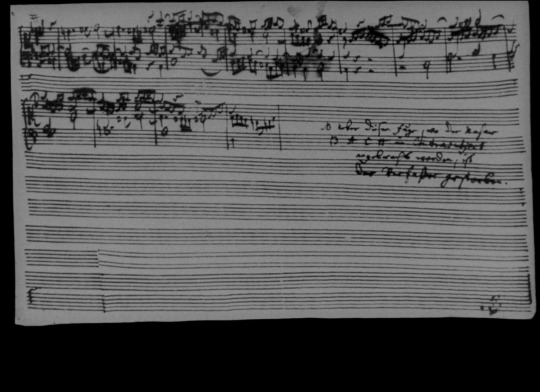
The Chronicle of Anna Magdalena Bach (1968, Jean-Marie Straub and Danièle Huillet)
0 notes